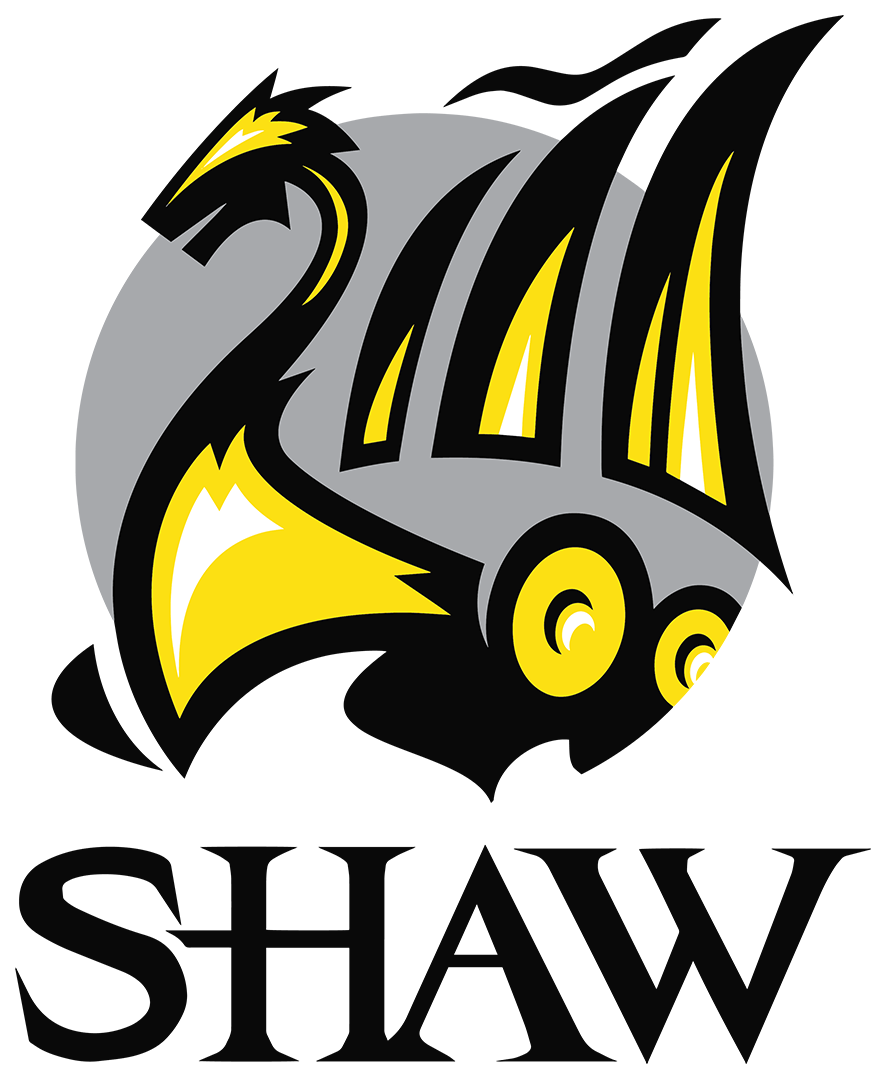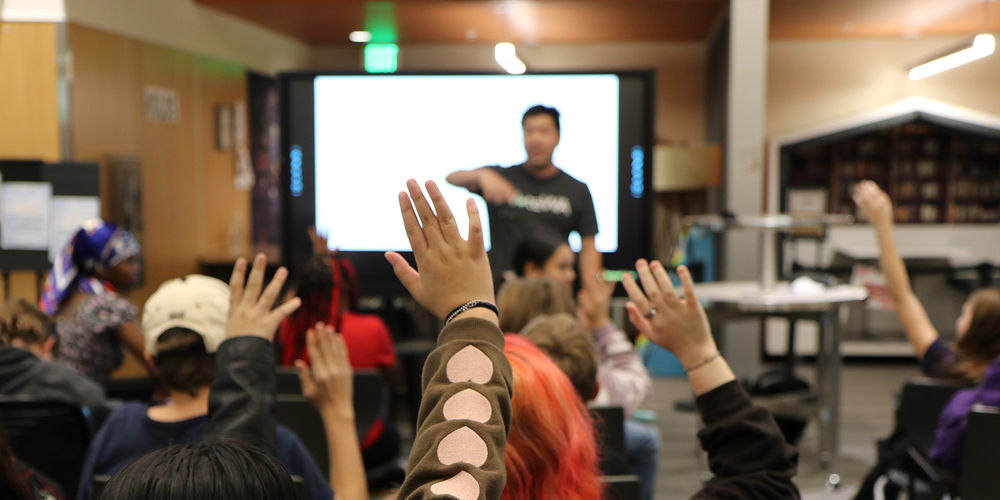During a lesson on voting last week, Shaw Middle School students waded into a major controversy: Pineapple on pizza.
MoonSub Vendetta, a Voting Education and Outreach Specialist from the Washington Office of the Secretary of State, asked students to determine once and for all if fruit on pizza should be outlawed.
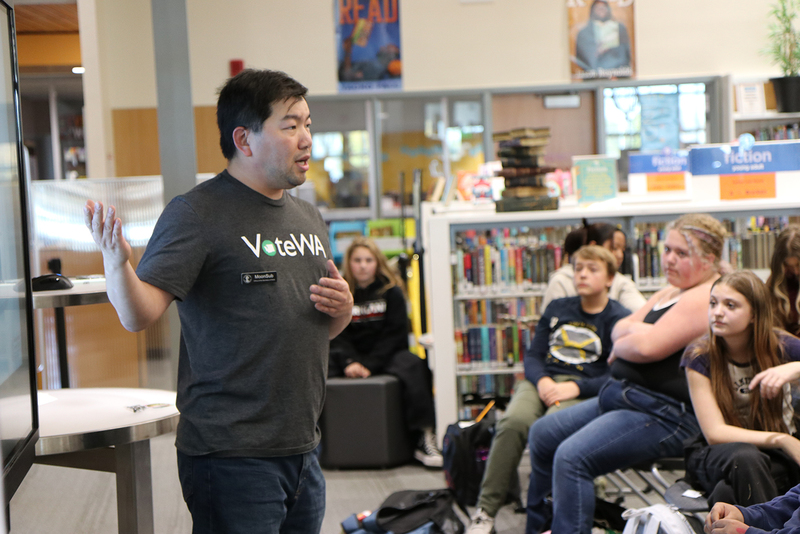
Students observed that although there were 23 pro-pineapple votes and 15 anti-pineapple votes, there were also nine individuals who abstained from voting.
“Are nine people enough to change the outcome of this election?” Vendetta asked, with students nodding solemnly in response. “At the heart of elections is people making decisions about our community.”
This election season, Vendetta and his team will visit about 40 schools, eight colleges and two cultural events across the state to share election education.
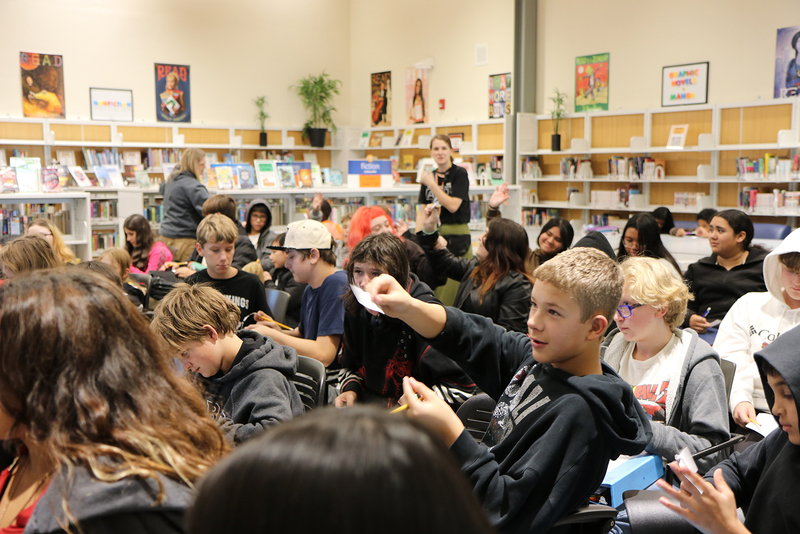
“The students are very receptive to learning about elections,” Vendetta said. “The youngest students are the most vicious with their questions, like ‘What happens if there’s a 3-way tie?’ or ‘How does a vice president who becomes president choose a new VP?’”
At Shaw, Vendetta led the discussion with seventh and eighth grade students from Sarah Smith’s AVID (Achievement Via Individual Determination) class and Melissa Jeffers’ ELD (English Language Development).
He asked students why voting is important, shared how elections are organized in Washington, and explored some myths that shape our perceptions about elections, especially those about younger voters.
Washington has programs to improve access for voters — like universal vote by mail and Future Voter, which allows eligible 16- and 17-year-olds to pre-register to vote. But younger voters can have difficulty voting after moving out of their parents' house and entering “the real world” if they haven’t updated their voter registration with their new address.
Vendetta also explained that about one-third of ballots returned by voters ages 18–29 are challenged because the signature on the returned ballot does not match that used when registering to vote. He had students write their signature at the start of the lesson and again at the end to see if they matched. Again, about one-third were questioned.
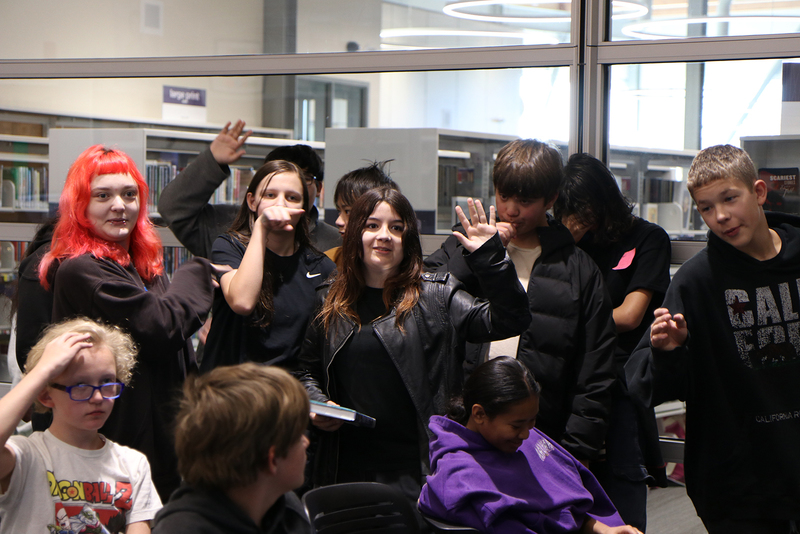
Seventh grader Caleb was surprised to learn how many people struggle with getting their signature to match.
“It can make it more difficult for your vote to be counted, so you have to make sure you get it right,” he said.
These students will also participate in Washington’s Student Mock Election, which presents ballots and voter pamphlets to K-12 students to educate about elections.
Smith and Jeffers think it’s especially important for their AVID and ELD students to have information about voting, noting that these classes are structured in a way that provides flexibility to bring in guest speakers like Vendetta.
“We want to show them that it’s important to participate and how they can be a voter,” Smith said.
Learn about Spokane County Elections and how eligible voters can Register online or by mail through Oct. 27, or in-person through Election Day.
